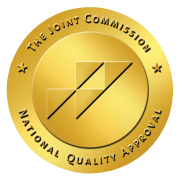Navigating the Complexities of Major Depressive Disorder
What Is Major Depressive Disorder?
Major Depressive Disorder (MDD) is a tremendously complex mental health condition that often impacts the quality of a person’s social interactions and daily life. This disorder, also known as clinical depression, often includes long bouts of sadness, a loss of interest in general quality of life, fatigue, feelings of worthlessness and guilt, and can even contribute to thoughts of self-harm.
Depression is serious. It causes people to lose themselves without even knowing it. Slowly their life dwindles away, and there is little memory of joy and relief. All that exists is a blanket of sadness covering their days. It’s hard to experience and nearly as difficult to watch a loved one go through it.
But there is hope. Various therapies have proven effective in helping people manage MDD, and in some cases medications can help people effectively maintain control of their diagnosis and find fulfillment and happiness in life once again.
What are the Factors that Contribute to Major Depressive Disorder?
Genetics
With research from leading health bodies stating that up to 50% of depression cases are hereditary, it’s safe to say genetics play a role in the development of MDD. This intricate link between MDD and genetics often means that individuals with family members that have MDD are up to 3x more likely to develop this condition than people without any hereditary links. If it runs in your family, you are are at risk of developing some degree of depression.
Environmental Factors
Environmental factors such as childhood trauma, excessive stress, and losing a loved one can also lead to the onset of MDD. While some of these adverse environmental factors may seem small and insignificant, they often have a domino effect that leads to impactful changes in our lives.
Brain Chemistry
Our brain is teeming with various neurotransmitters that play a crucial role in helping us control our feelings and mood. As an illustration, serotonin is a powerful neurotransmitter that aids in managing bodily functions like sleep and mood. So, individuals with lower serotonin levels are more likely to develop MDD than those with high serotonin levels.
What Types of Major Depressive Disorder?
Major depressive disorder (MDD) can manifest in different ways, and clinicians may categorize it into various types based on specific features or patterns of symptoms. Here are some types of major depressive disorder:
- Melancholic Depression: This type of depression is characterized by severe symptoms such as a loss of pleasure in almost all activities (anhedonia), significant weight loss or loss of appetite, excessive guilt, early morning awakenings, and a general feeling of being emotionally or physically agitated.
- Atypical Depression: Atypical depression expresses itself in mood reactivity, meaning that individuals may experience temporary improvements in mood in response to positive events or situations. Other symptoms include increased appetite or weight gain, excessive sleep or fatigue, a heavy feeling in the limbs, and heightened sensitivity to rejection.
- Psychotic Depression: Psychotic depression typically includes hallucinations (perceiving things that aren’t real) or delusions (having false beliefs). These hallucinations or delusions are typically consistent with depressive themes such as guilt, personal inadequacy, or worthlessness.
- Postpartum Depression: Postpartum depression occurs in women after childbirth. Women may feel extreme sadness, anxiety, and exhaustion that can make it challenging to care for oneself or the baby. Hormonal changes, sleep deprivation, and psychosocial factors contribute to its development.
- Seasonal Affective Disorder (SAD): SAD is a type of depression that occurs in a seasonal pattern, typically during the fall and winter months when there is less natural sunlight. Symptoms include low mood, lethargy, increased sleep, weight gain, and carbohydrate cravings. Symptoms tend to improve in the spring and summer.
- Catatonic Depression: Catatonia can be identified by motor abnormalities, and when it occurs in the context of depression, it is called catatonic depression. Symptoms may include immobility or excessive, purposeless motor activity, mutism (inability or refusal to speak), and peculiar postures or repetitive movements.
Are there any Treatments for Major Depressive Disorder?
If you have received an MDD diagnosis, it can be natural to feel like the world is closing in on you. However, this could not be further from the case, as there are various proven MDD treatments available today, including:
Antidepressant Medication
Antidepressant medication is an effective way to treat MDD. These medications aid in reducing the symptoms of your diagnosis, making it easier to go through your daily life and engage in social interactions.
Psychotherapy
Psychotherapeutic treatments, such as CBT and interpersonal therapy, have remained one of the most successful ways to treat MDD. This medically proven solution often works by diving into the root cause of your MDD and teaching you new ways to cope with your depression.
IOP for Major Depressive Disorder
Intensive Outpatient Program (IOP) is a type of treatment service and support program used primarily to treat depression, personality disorders, anxiety, and other mental health disorders. The idea behind IOPs is that they provide a high level of care, but the patient still lives at home, allowing for a balance between intensive treatment and normal life activities.
IOP can be a particularly good option for Major Depressive Disorder (MDD) for several reasons:
- Intensity of treatment: IOPs generally involve multiple treatment sessions per week, which can include individual therapy, group therapy, and medication management. This high intensity of treatment can be very helpful for managing the symptoms of MDD.
- Supportive environment: Group therapy sessions, which are often a part of IOPs, can provide a supportive and understanding environment. This can be helpful for people with MDD who often feel isolated and misunderstood.
- Holistic approach: IOPs often include components of cognitive behavioral therapy (CBT), dialectical behavior therapy (DBT), and other types of therapy. This multi-faceted approach can address a variety of issues related to MDD, including cognitive distortions, emotional regulation, and unhealthy coping mechanisms.
Getting Help With GDD in Newport Beach
One of the most crucial things to understand about MDD is that each diagnosis is tremendously unique, and there is no one-size-fits-all solution. So, if you are considering treating this condition, we often suggest seeking a health practice that offers personalized treatment plans.
The core benefit of individualized treatment is that it always considers your unique needs and experiences, leading to a more effective treatment plan.
Remember, getting help for depression disorders is a process, and it may take time to find the right treatment for you. If you want to talk to someone about an IOP option for general depressive disorder, call Lido Wellness Center today.
Our mental health services in Newport Beach are designed to help individuals with depression, anxiety, and other disorders that affect millions of people across the country.




